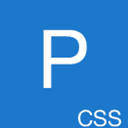Tailwind CSS Alternatives

Tailwind CSS
Tailwind is different from frameworks like Bootstrap, Foundation, or Bulma in that it's not a UI kit.
It doesn't have a default theme, and there are no built-in UI components.
On the flip side, it also has no opinion about how your site should look and doesn't impose design decisions that you have to fight to undo.
If you're looking for a framework that comes with a menu of predesigned widgets to build your site with, Tailwind might not be the right framework for you, which is why we have some alternatives.
But if you want a huge head start implementing a custom design with its own identity, Tailwind might be just what you're looking for.
Utility-first
Creating a framework for building custom UIs means you can't provide abstractions at the usual level of buttons, forms, cards, navbars, etc.
Instead, Tailwind provides highly composable, low-level utility classes that make it easy to build complex user interfaces without encouraging any two sites to look the same.
Component-friendly
While you can do a lot with just utility classes, sometimes a component class is the right decision.
Tailwind provides tools for extracting component classes from repeated utility patterns, making it easy to update multiple instances of a component from one place.
Responsive to the core
Every Tailwind utility also comes in responsive flavors, making it extremely easy to build responsive interfaces without ever leaving your HTML.
Tailwind uses an intuitive {screen}: prefix that makes it easy to notice responsive classes in your markup while keeping the original class name recognizable and intact.
Designed to be customized
If it makes sense to be customizable, Tailwind lets you customize it.
This includes colors, border sizes, font weights, spacing utilities, breakpoints, shadows, and tons more.
Tailwind is written in PostCSS and configured in JavaScript, which means you have the full power of a real programming language at your fingertips.
Tailwind is more than a CSS framework, it's an engine for creating design systems.
Best Open Source Tailwind CSS Alternatives
Hate Tailwind CSS? Use another browser! Which one should you go with? Try out these other browsers before making your final decision. Want some more context? We've got a great list of alternatives to Tailwind CSS here.

Bootstrap
FreeOpen SourceSelf-HostedHTML5 BoilerplateJavaScriptBootstrap is a open-source collection of tools for creating browser sites and applications. It contains HTML and CSS-based design templates for typography, forms...
Features:
- Responsive design
- Active Development
- Clean design
- Documentation
- Premade templates
- Responsive design
- Resposive layout

Foundation
FreeOpen SourceWebFoundation is an easy to use, powerful, and flexible framework for building rapid prototypes and production code on any kind of device.

Semantic UI
FreeOpen SourceWebSemantic empowers designers and developers by creating a shared vocabulary for UI.

Bulma
FreeOpen SourceWebSelf-HostedA modern CSS framework based on Flexbox.
Features:
- Responsive design
- CSS framework
- HTML5 Support
- Lightweight
- Mobile friendly
- Web Development

UIkit
FreeOpen SourceWebA lightweight and modular front-end framework for developing fast and powerful web interfaces.

Materialize
FreeOpen SourceWebMaterialize is a modern responsive CSS framework based on Material Design by Google
Features:
- Material design
- CSS framework
- Mobile framework
- Responsive design
- Web Development

jQuery Mobile
FreeOpen SourceWebjQueryA unified, HTML5-based user interface system for all popular mobile device platforms, built on the rock-solid jQuery and jQuery UI foundation. Its lightweight code is...

Skeleton
FreeOpen SourceWebSkeleton is a small collection of CSS & JS files that can help you rapidly develop sites that look beautiful at any size, be it a 17" laptop screen or an...
Features:
- CSS framework
- Responsive design

Purecss
FreeOpen SourceWebA set of small, responsive CSS modules that you can use in every web project.

Element UI
FreeOpen SourceWebSelf-HostedCSSJavaScriptVue.jsElement, a Vue 2.0 based component library for developers, designers and product managers.
Upvote Comparison
Interest Trends
Tailwind CSS Reviews
Add your reviews & share your experience when using Tailwind CSS to the world. Your opinion will be useful to others who are looking for the best Tailwind CSS alternatives.